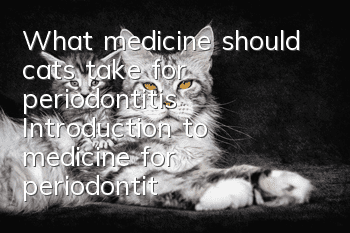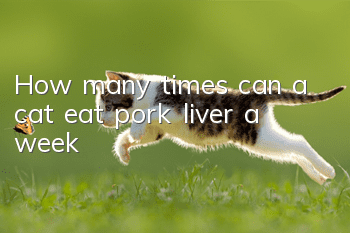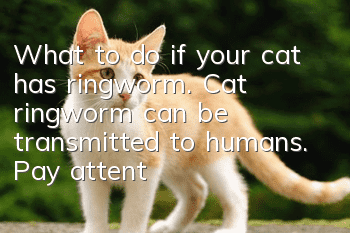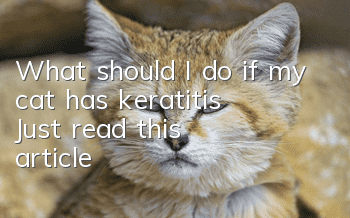What medicine should cats take for periodontitis? Introduction to medicine for periodontitis

What medicine should cats take for periodontitis? Feline periodontitis is an acute or chronic inflammation of the tissue around the cat’s teeth. Periodontitis will cause the cat to eat less, so if you want the cat to recover quickly, you must take it for treatment.
1. Causes of periodontitis in cats
① Mechanical stimulation occurs after dental calculus.
② Caused by food accumulation or infection after tooth loss.
③ Improper feeding and management, lack of trace elements and vitamins in food.
④Certain infectious diseases and chronic systemic diseases, such as calicivirus, diabetes, kidney disease, hyperthyroidism and genetic diseases.
2. What are the symptoms of periodontitis in cats
Clinical symptoms include large amounts of bleeding, intermittent feeding, fear of eating hard food, difficulty chewing, and screams of severe pain when food occasionally touches the lesion. An unpleasant odor comes from the mouth. Affected cats resist oral examinations. During the oral examination, it can be seen that there is calculus attached to the teeth, the teeth are loose, the teeth are congested and swollen, and there is obvious pain when the affected teeth are touched with instruments.
3. How to treat periodontitis in cats
① General anesthesia is required during treatment, and the head must be stabilized.
② Completely remove dental calculus, and necrotic teeth and teeth that have lost tooth function should be extracted.
③ Rinse the mouth with disinfectant, 0.1% potassium permanganate water or 3% boric acid water. Then apply 2% iodine glycerin or tin powder or ice boron powder. For teeth with hyperplastic granuloma, 10% silver nitrate can be used for corrosion.
④ To control infection, you can choose penicillin 50,000 units/kg body weight and dexamethasone 0.5 mg/kg body weight, mixed once for intramuscular injection, 2 times/day. Gentamicin 10,000 units/kg body weight, dexamethasone 0.5 mg/kg body weight, mixed once for intramuscular injection, 2 times/day.
⑤ Supportive therapy. For cats with reduced appetite, glucose and compound saline should be infused intravenously, and oral vitamin B preparations should be given.
⑥Give nutritious liquid food.
When this disease is treated with oral cleaning and systemic application of antibiotics and corticosteroids, the clinical symptoms can be significantly improved, and some cats can be cured. However, some cats are prone to relapse after stopping the medication and cannot be completely eradicated.
- What to do if Himalayan cats have urinary stones
- How old is a five-year-old cat to a human?
- How to take care of a two-month-old cat that has just arrived at a new home
- Love cats but are allergic? Scientists are here to help you suck cats to your heart’s content!
- Can the cat litter box be placed in the same cage as the cat food bowl?
- Can cats eat shrimp? Is it healthy for cats to eat shrimp?
- Burmese cat appearance characteristics and breed personality
- How to raise a one-month-old kitten? Tips for raising a one-month-old kitten
- The cat has eye mucus in his eyes after eating. It needs to be relieved as soon as possible.
- This cat suffered from severe conjunctivitis in both eyes and became blind. Unexpectedly, it turned out like this a few days later!



